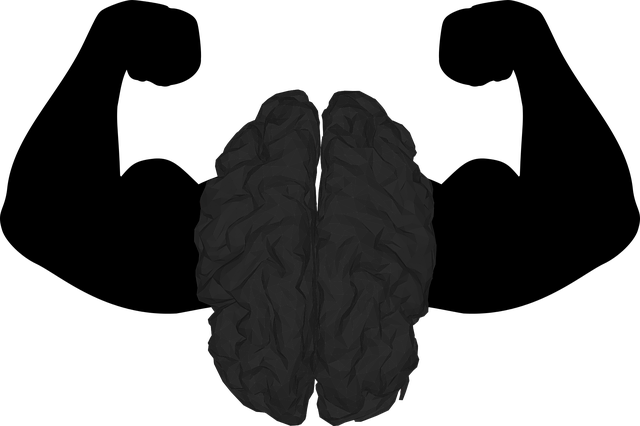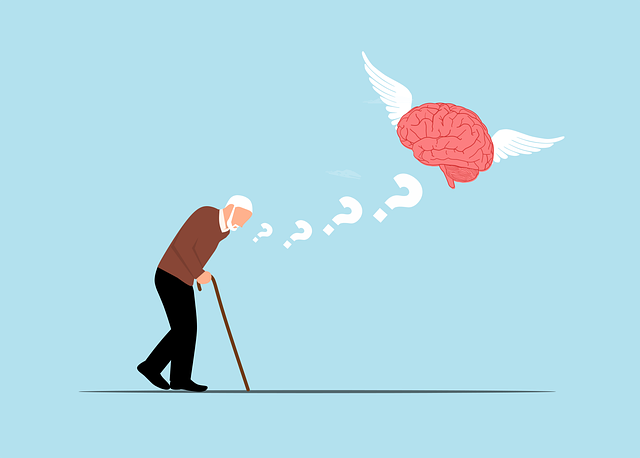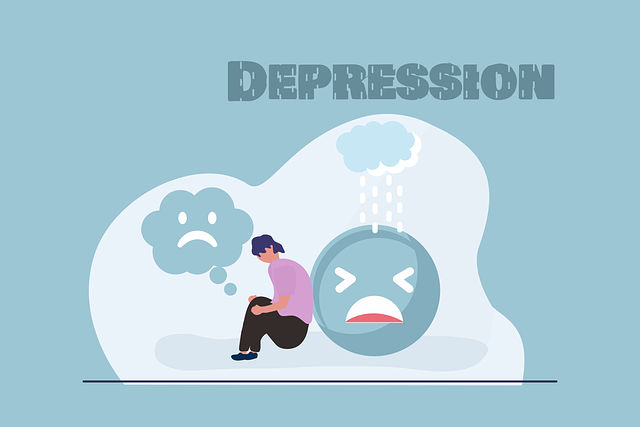Greenwood Village Major Life Transitions Therapy tackles mental health stigma through holistic support during major life changes, leveraging diverse therapeutic approaches, community engagement, and education. By fostering cultural sensitivity, promoting positive thinking, and providing tailored sessions, the initiative reduces isolation, encourages early intervention, and normalizes conversations about mental health. Through podcasts, workshops, and awareness campaigns, Greenwood Village leads in breaking down barriers, improving access to care, and enhancing overall mental wellness.
Mental illness stigma remains a significant barrier to accessing quality mental health care. This article explores comprehensive strategies to reduce this damaging perception, focusing on understanding its root causes, community-driven initiatives like Greenwood Village’s supportive model, and the unique impact of major life transitions. We delve into therapy’s role as a catalyst for change, empowering individuals and communities through evidence-based practices and continuous stigma reduction efforts, emphasizing the importance of accessible support, especially during vulnerable periods, such as major life transitions, while highlighting the success stories from Greenwood Village.
- Understanding Stigma: A Major Obstacle in Mental Health Care
- Greenwood Village: A Community-Driven Approach to Mental Illness Support
- Major Life Transitions and Their Impact on Mental Wellbeing
- Therapy as a Catalyst for Change: Breaking Down Stigma Barriers
- Strategies for Continuous Stigma Reduction: Empowering Individuals and Communities
Understanding Stigma: A Major Obstacle in Mental Health Care

Stigma surrounding mental illness remains a significant barrier to individuals seeking help and support for their well-being. Often rooted in societal perceptions and misinformation, this stigma can lead to discrimination, isolation, and even self-stigmatization among those struggling with their mental health. In Greenwood Village, where diverse communities come together during Major Life Transitions, understanding the impact of stigma is crucial for fostering an inclusive environment.
The consequences of stigma are far-reaching, affecting not just individuals but also healthcare systems. It often discourages people from openly discussing their experiences, hindering early intervention and access to appropriate therapy, such as that offered at Major Life Transitions in Greenwood Village. To combat this, healthcare provider training in cultural competency, crisis intervention guidance, and promoting positive thinking can significantly contribute to reducing stigma. By challenging existing beliefs and fostering empathy, these efforts aim to create a supportive atmosphere where individuals feel comfortable seeking professional help when needed.
Greenwood Village: A Community-Driven Approach to Mental Illness Support

In Greenwood Village, a unique community-driven approach to mental illness support has emerged, focusing on holistic care and empowerment. This initiative recognizes that addressing mental health challenges often involves navigating major life transitions, which can be both daunting and transformative. By integrating various therapeutic modalities, such as Major Life Transitions Therapy, the village offers a nurturing environment where individuals can explore their mental wellness through journaling exercises and receive guidance tailored to their specific needs.
The community’s engagement is pivotal in this strategy, fostering a culture of cultural sensitivity within mental healthcare practice. This approach not only enhances risk management planning for professionals but also ensures that support systems are accessible and inclusive. Greenwood Village serves as a testament to the power of collective efforts in reducing stigma, promoting understanding, and ultimately improving the overall mental health landscape.
Major Life Transitions and Their Impact on Mental Wellbeing

Major life transitions can significantly impact mental wellbeing, often leading to a surge in mental health concerns. Changes like graduating from college, starting a new job, or moving to a different city bring both excitement and stress. These events disrupt established routines and social networks, potentially triggering or exacerbating conditions such as anxiety, depression, or PTSD. According to research conducted in Greenwood Village, individuals going through major life transitions are more likely to seek therapy as a coping mechanism, highlighting the importance of addressing mental wellness during these pivotal moments.
Effective management of stress during these times can mitigate the risk of long-term mental health issues. Techniques such as conflict resolution strategies and mindfulness meditation have proven beneficial in navigating life’s challenges. The Greenwood Village Mental Wellness Podcast Series Production has successfully reached a wide audience, offering practical advice and inspiring stories to support individuals facing similar transitions. By fostering open conversations about mental health, these initiatives contribute to breaking down the stigma associated with seeking help during difficult life changes.
Therapy as a Catalyst for Change: Breaking Down Stigma Barriers

In Greenwood Village, Major Life Transitions Therapy has emerged as a powerful tool in the ongoing mental illness stigma reduction efforts. By providing a safe and supportive environment, therapists facilitate deep exploration and healing, allowing individuals to confront and dispel misconceptions surrounding mental health challenges. Through tailored therapy sessions, clients gain insights into their conditions, fostering self-acceptance and understanding—key elements in breaking down societal barriers.
The therapeutic process empowers individuals to share their experiences openly, challenging the isolation often associated with mental illness. By normalizing conversations about mental health, these efforts contribute significantly to Greenwood Village’s Mental Health Awareness initiatives. Moreover, resilience building and stress management workshops organized by local support groups play a crucial role in equipping individuals with coping mechanisms, enhancing their overall well-being and further reducing the stigma attached to seeking help.
Strategies for Continuous Stigma Reduction: Empowering Individuals and Communities

Stigma reduction is an ongoing process that requires collective effort and a multi-faceted approach. One powerful strategy is to empower individuals living with mental illness by providing them with the tools and resources to advocate for themselves. This can involve education and awareness campaigns, like those offered through Greenwood Village Major Life Transitions Therapy, which aim to dispel myths and promote understanding. Encouraging open conversations about mental health experiences in communities can help foster a culture of support and reduce the isolation often associated with stigma.
Additionally, Community-based initiatives such as Social Skills Training and Mental Wellness Coaching Programs Development can empower individuals to build resilience and navigate life transitions more effectively. These programs create safe spaces for sharing experiences, offer practical coping strategies, and enhance social connections. For healthcare providers, Burnout Prevention Strategies are essential to ensure they can provide quality care without succumbing to the challenges of high-stress environments. By implementing these comprehensive approaches, communities can actively contribute to continuous stigma reduction and promote mental wellness on a broader scale.
Mental illness stigma reduction is a multifaceted process that requires community engagement, education, and supportive services. As seen in initiatives like Greenwood Village, a community-driven approach can significantly impact mental health care accessibility. Understanding the role of major life transitions in mental wellbeing and leveraging therapy as a catalyst for change are essential steps towards breaking down barriers. By implementing continuous stigma reduction strategies at individual and community levels, we can foster an environment where those facing mental health challenges feel empowered to seek support and receive care with dignity.









